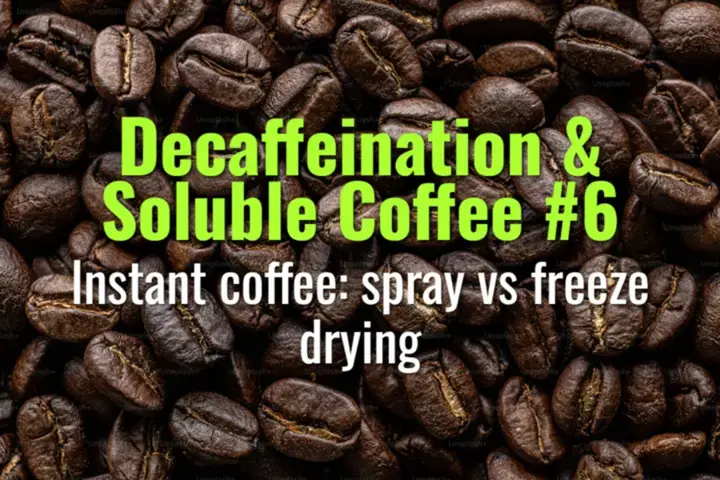
Instant coffee: spray vs freeze drying
The two main industrial methods for producing instant coffee—spray drying and freeze drying—and how they differ in process, cost, and flavor preservation.

The two main industrial methods for producing instant coffee—spray drying and freeze drying—and how they differ in process, cost, and flavor preservation.
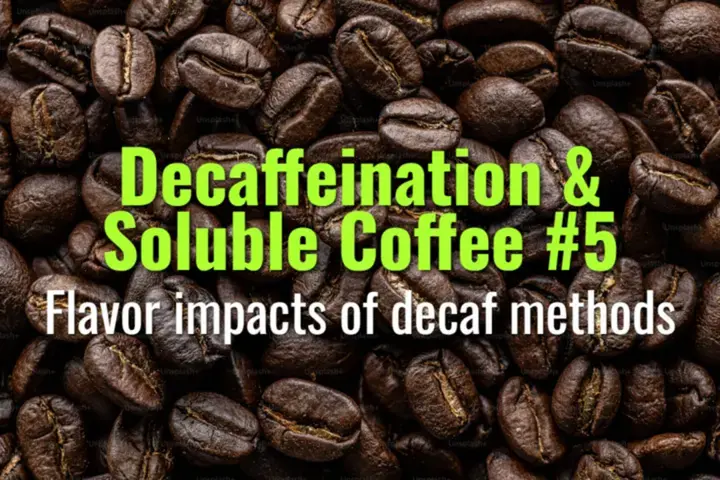
How different decaffeination methods affect coffee flavor, body, and aroma, and what this means for specialty coffee drinkers.
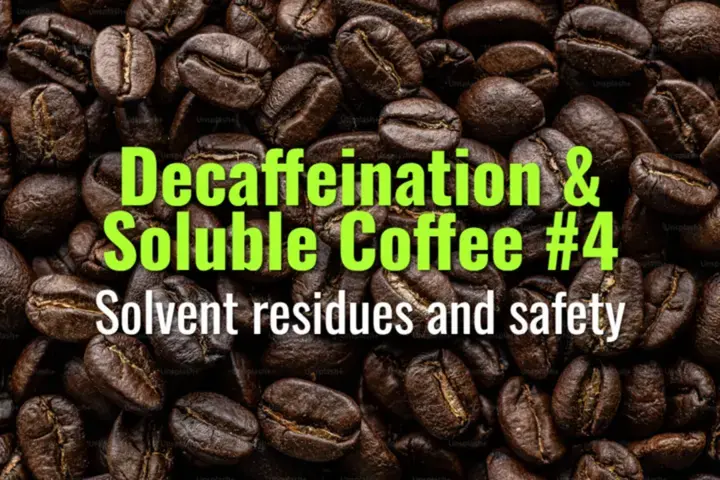
How solvent-based decaffeination works, what residues may remain, and why regulatory bodies consider these processes safe for consumers.
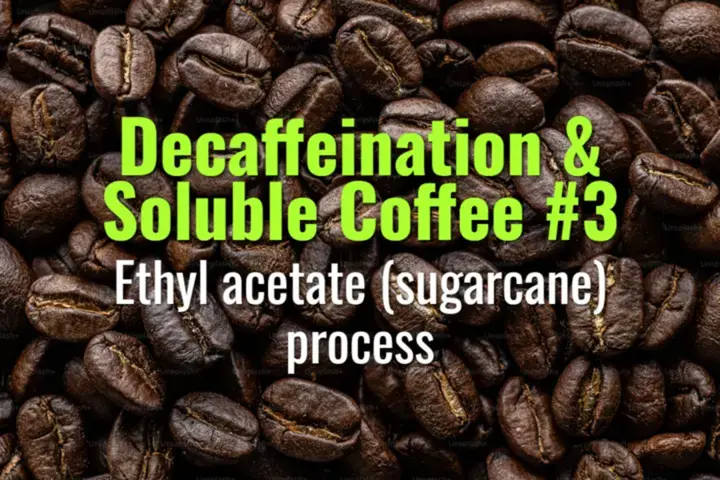
How the ethyl acetate (EA) process—often called the sugarcane method—decaffeinates coffee using a naturally derived solvent while maintaining desirable flavor qualities.
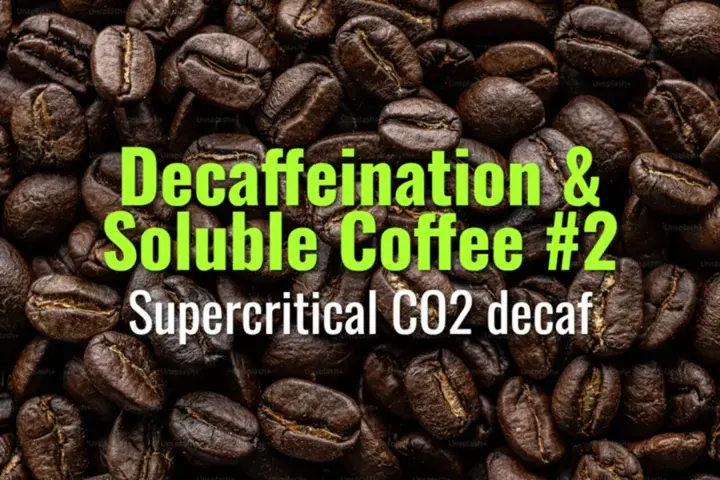
How the supercritical CO₂ process removes caffeine from green coffee beans using pressurized carbon dioxide, balancing efficiency and flavor preservation.
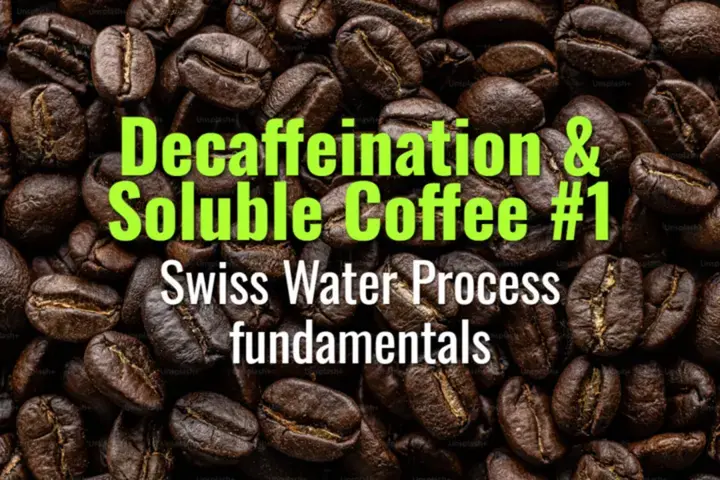
How the Swiss Water Process removes caffeine from coffee beans using water and activated carbon, preserving flavor without chemical solvents.